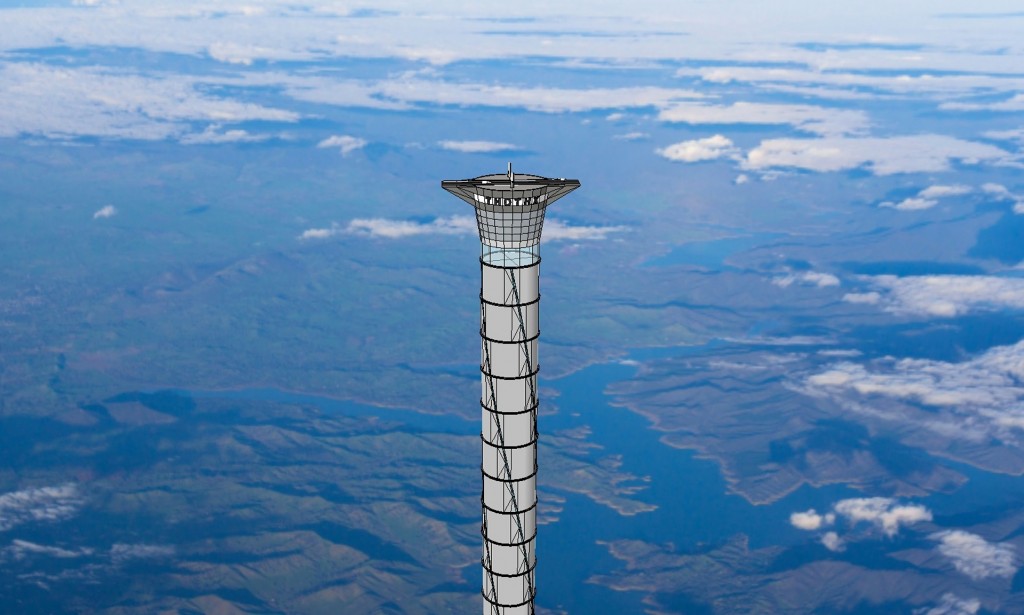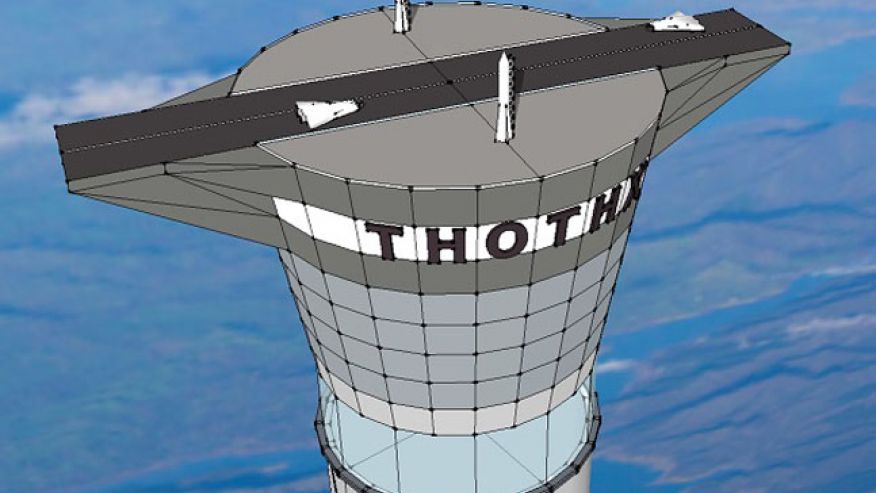Blasting off into space may never look the same if Thoth Technology, a Canadian company, can have its way: instead of taking a rocket ship, why not take a giant elevator into space?
The space firm has been granted both US and UK patents for a space elevator designed to take astronauts up into the stratosphere, so they can then be propelled into space. It said that the tower, named the ThothX Tower, will be an inflatable, freestanding structure complete with an electrical elevator and will reach 20km (12.5 miles) above the Earth.
“Astronauts would ascend to 20km by electrical elevator. From the top of the tower, space planes will launch in a single stage to orbit, returning to the top of the tower for refueling and reflight,” Brendan Quine, the tower’s inventor, said in a statement.
Traditionally, regions above 50km (31 miles) in altitude can only be reached by rocket ships, where mass is expelled at a high velocity to achieve thrust in the opposite direction. Quine said in the patent that rocketry is “extremely inefficient” and that a space elevator would take less energy. In the patent, Quine explained that rocket ships expend more energy because they “must counter the gravitational force during the flight by carrying mass in the form of propellant and must overcome atmospheric drag”.
By using an elevator system, in contrast, “the work done is significantly less as no expulsion mass must be carried to do work against gravity, and lower ascent speeds in the lower atmosphere can virtually eliminate atmospheric drag”.
The elevator cars can also be powered electrically or inductively, eliminating the need to carry fuel, Quine wrote. The technology offers a way to access space through reusable hardware, and will save more than 30% of the fuel of a conventional rocket, Thoth Technology said in a July statement.
The next step for Thoth Technology now is to build a 0.9-mile-tall demonstration elevator, before building the full 12.4 mile-high tower. Even the demonstration tower would be the world’s largest structure, Quine explained.
Traditional rocket launches can cost upwards of $250 million, while cheaper commercial offerings like those offered by SpaceX — the commercial aerospace company founded by Elon Musk— lists the launch price of its Falcon 9 rocket at $61.2 million and it’s Falcon Heavy model at $90 million.




